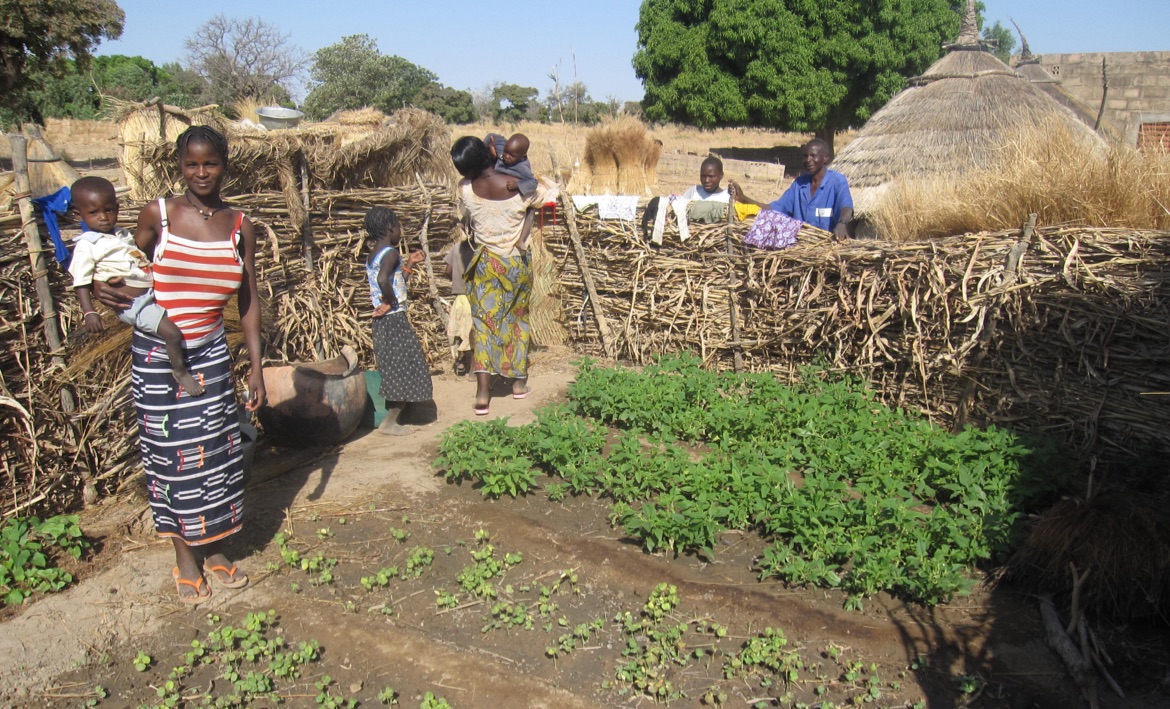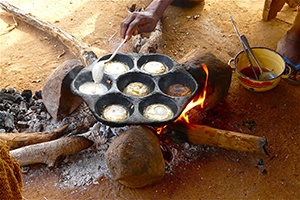Creating Homestead Agriculture for Nutrition and Gender Equity (CHANGE) is a three-year (2012-2015) project which aims to design, implement, monitor, and evaluate an Enhanced-Homestead Food Production (E-HFP) model that improves the nutritional status of infants and young children and their mothers through homestead food production and nutrition behavior change. Helen Keller International is implementing the project with funding from Canada’s Department of Foreign Affairs, Trade and Development (DFAT-D), and working in partnership with IFPRI to design and carry out research and evaluation activities.
Maternal and child undernutrition has long-lasting, irreversible effects on the development, health and economic productivity of individuals, communities and entire nations. The underlying causes of child malnutrition are many, but can be grouped into three clusters: (1) insufficient household food security; (2) inadequate maternal and child care and; (3) insufficient health services (UNICEF). The CHANGE project builds on existing initiatives to implement a refined E-HFP model based on a diversity of horticultural crops and micronutrient-rich foods, and to support improved nutrition practices and behavior change communication through a network of local agricultural and health partners.
In support of this project, IFPRI is designing and implementing rigorous impact evaluations and impact pathway research in Burkina Faso and Tanzania. The research will help fill knowledge gaps in HKI’s current body of evidence built around E-HFP, create evidence-based policy arguments to facilitate adoption and scaling-up of improved practices, and document the knowledge to enable others to implement E-HFP on a larger scale.








